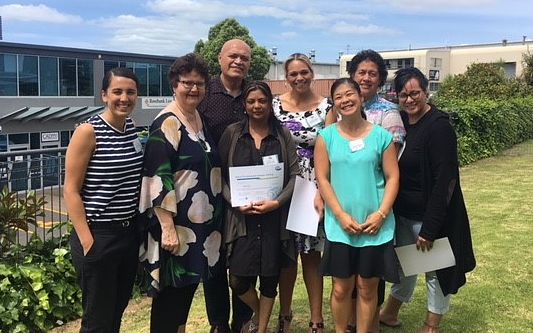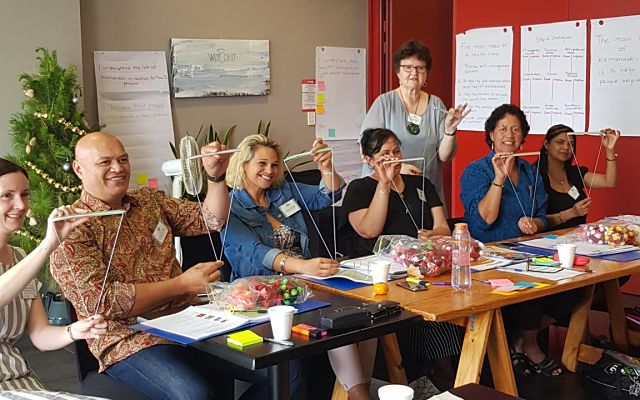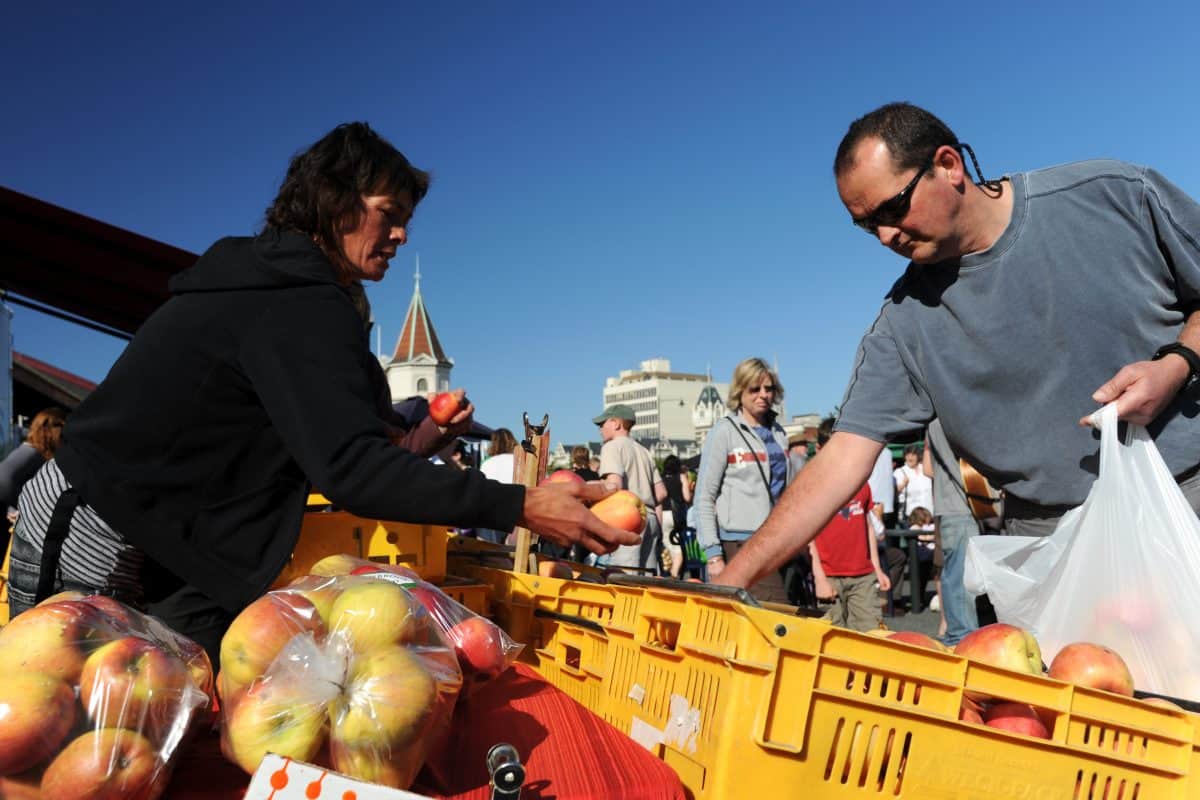Mana Tū: Using a whānau ora approach to tackle long-term conditions
17 May 2018
Long-term health conditions – such as type 2 diabetes – don’t have to mean the end of a fulfilling, full life. But diabetes is a long-term condition which, if not well managed, can lead to poor health outcomes and even shorter lives. Māori is one group within our community who suffer more than others from these poor outcomes. And it’s this inequity that a new research project is looking to address.
The study, led by Dr Matire Harwood, will test Mana Tū — a programme co-designed with whānau, clinicians, health service planners, and whānau ora providers. It aims to improve the impact of clinical and lifestyle interventions for whānau living with pre-diabetes, and people with poorly controlled diabetes.
Mana Tū is a foundation project of the Long-Term Conditions funding partnership set up last year between Healthier Lives, Health Research Council of NZ and the Ministry of Health.
Social determinants of health

The project came about, explains Dr Harwood, because it was clear from previous work that things that affect people’s ability to take charge and live a fulfilling life with type 2 diabetes often relate to the wider context in which they’re living.
“They’re the social determinants of health like poverty and housing, but also their engagement with the health system, which is often not good,” she says. “People can feel undervalued or discriminated against; cost is an issue – on lots of different levels it is difficult for them to manage their conditions.”
People with poorly-controlled diabetes have a significant impact on the hospital system, often presenting at hospital with complications. Dr Harwood says 80 % are Māori or Pacific peoples.
Looking at work done overseas with indigenous communities, the researchers identified evidence that that case managers, working within primary care practices, could have a positive impact on these patients.
“Case managers have the ability to get clinical input, but also to work with that person and their family to address those social determinants of health,” says Dr Harwood.
Kaimanaaki-whānau – clinical champions

The 12-month trial is operating in five GP practices – four in Auckland and one in Northland. The case managers, or Kaimanaaki-whānau, work in the practices. Clinical ‘champions’ identify people with poorly-controlled type 2 diabetes, and the Kaimanaaki recruit them as participants in the research, working with them and their families for 12 months to help them take control of their diabetes. The research will compare 40 people of similar age from each practice.
It’s a simple intervention at the coal-face of health management, and there’s potential to really improve lives.
Currently, patients with poorly-controlled diabetes are often left to their own devices, getting no more support than three-monthly GP visits. Doctors often struggle to get patients engaged, or to even attend appointments, and can be confined to watching their HbA1c levels creep ever higher, while not feeling able to help. (HbA1c is a marker used to measure long-term blood sugar (glucose) levels).
A project like Mana Tū could stop that.
“We’re saying we need to help these people with HbA1c greater than 65,” says Dr Harwood, “because they’re the ones who are going to end up on dialysis, blind or with amputations.”
Building on a promising pilot study
A pilot programme at the Papakura marae last year showed promising results, with an average hbA1c drop of 12 points in participants.
So what do the Kaimanaaki do once people are on board with the programme?
There will usually be group education to start, says Dr Harwood. Then, they’ll discuss each person’s needs.
“We’ll ask: what are the things that are going to help you take control of your diabetes?”
Real life experiences

The answers can vary from person to person. Dr Harwood shares some examples from the pilot:
“Someone would say it’s all good telling me to cook healthy kai, but my kitchen is crappy; I don’t have a functioning oven, etc. So the group would go to that person’s house on a weekend and clean up the kitchen. They’d work with the local supermarket to get it loaded with healthy spices and things like that.”
For others, exercise was a challenge, but not in ways we might expect.
“Someone else said ‘I’m too ashamed to go out and exercise because everyone makes fun of me being so fat… I don’t want to go outside’. So she got access to a bike shop that gives out free donated bikes; now she has a bike set up on a rotator system, like an exercycle, and she’s lost 50 kilos. Now she’s not ashamed to get out and go for a walk.”
It’s this kind of empowering approach that can have lasting impact, believes Dr Harwood.
“We are empowering people by letting them determine what’s important for them, to help them. Rather than us saying ‘you need to eat better’. We’re making people feel better about themselves and feel valued in that process.”
Flow-on effects
There are other possible positive outcomes from this research too – the project is supporting Māori and Pacific students to do post-graduate work to develop into roles as heath researchers.
The Kaimanaaki themselves have a wide range of skills: from nurses to social workers, psychologists, or community health workers with diabetes experience. Because they’re also working with the wider whānau, they’re able to identify prediabetes in other whānau members and work on that, too, adding a prevention element.
The ideal outcome for the project, says Dr Harwood, would be to have proof that this type of programme works, and to get it funded through primary care. And she thinks the programmes could be effective not just for diabetes.
“They would work for other long-term conditions such as heart failure, arthritis or stroke.”
Read more about Mana Tū: A whānau ora approach to long term conditions.
* The Mana Tū project is jointly funded by the Healthier Lives National Science Challenge, the Ministry of Health, and the Health Research Council of New Zealand (HRC) as part of the Long Term Conditions Partnership.


